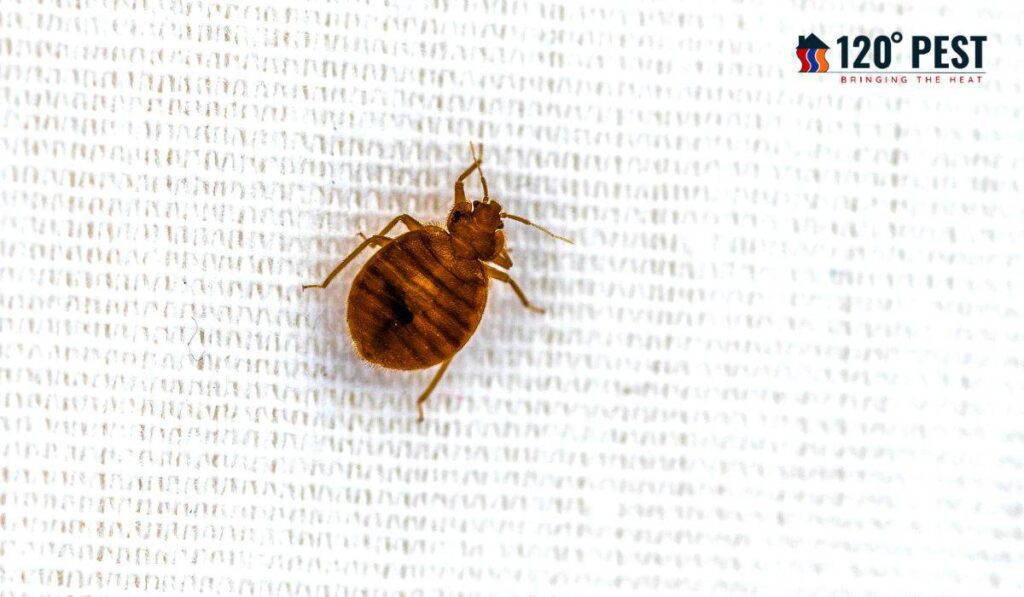Bed bugs are notorious for their ability to infest various environments, and trucks are no exception.
The presence of these blood-sucking pests in trucks can be a significant concern for truckers and the transportation industry.
This article will explore the ins and outs of dealing with truck bed bugs and how to prevent, identify, and treat infestations.
Identifying Bed Bugs
Before delving into the specifics of bed bug infestations in trucks, knowing how to identify these pests is crucial.
Bed bugs are minor, reddish-brown insects measuring about 5-7 millimeters.
They have flat bodies and are often mistaken for pests like ticks or fleas.
Identifying them correctly is the first step in addressing the issue.
Signs of Bed Bugs in Trucks
Truckers should be aware of common signs that indicate the presence of bed bugs in their vehicles.
These include minor reddish or brownish stains on sheets or upholstery, tiny eggs or eggshells, and the distinctive musty odor that bed bugs emit.
These signs can help you detect an infestation early on.
How Do Bed Bugs Get into Trucks?
Understanding how bed bugs make their way into trucks is essential for prevention.
Bed bugs are hitchhikers; they can easily latch onto luggage, clothing, or other items and be unknowingly transported into a car.
Drivers who stay in infested motels or load cargo from infested areas are particularly vulnerable.

Preventing Bed Bugs in Trucks
Preventing bed bug infestations is far easier than dealing with them.
This section will provide practical tips for truckers on how to avoid bringing bed bugs into their vehicles.
These tips include thorough inspections, proper hygiene, and protective measures for bedding and cargo.
Treating Bed Bug Infestations
In the unfortunate event of a bed bug infestation, knowing how to handle the situation is essential.
This section will discuss various treatment options, including do-it-yourself methods and when to call in professionals for help.
Cleaning and Maintenance
Proper cleaning and maintenance are crucial in keeping bed bugs at bay.
We will provide step-by-step guidance on how to clean your truck and belongings to prevent future infestations.
Legal Implications for Trucking Companies
Trucking companies should know the legal implications of bed bug infestations.
Please address these issues adequately to avoid liabilities.
We’ll explore the legal side of dealing with bed bugs in the transportation industry.
Bed Bugs and the Transportation Industry
This section will overview how bed bugs affect the transportation industry.
It discusses the financial impact, potential loss of customers, and reputation damage associated with infestations.
Bed Bugs and Health Risks
Apart from being a nuisance, bed bugs also pose health risks.
We’ll delve into the potential health issues caused by bed bug bites and how to mitigate them.
Bed Bugs vs. Other Pests
Comparing bed bugs to other common pests in trucks can be enlightening.
This section will highlight the critical differences between bed bugs and other unwanted passengers in your vehicle.
Bed Bug Myths and Facts
Separating myths from facts is vital in dealing with bed bug infestations.
We’ll debunk common misconceptions and provide accurate information to address the issue effectively.
Customer Experiences
Real-life experiences and stories from truckers who have dealt with bed bugs can offer valuable insights and practical tips.
We’ll share personal accounts to help you understand the challenges and solutions.
Conclusion

In conclusion, bed bugs in trucks can be a pervasive issue, but with the proper knowledge and proactive measures, it’s possible to prevent and address infestations effectively.
Remember that early detection and prevention are key.
FAQs on Bed Bugs in Trucks
How can I prevent bed bugs from getting into my truck?
To prevent bed bugs, inspect your sleeping area regularly, avoid placing luggage or clothing on hotel beds, and use bedbug-proof covers on mattresses and pillows.
What are the health risks associated with bed bug infestations?
While bed bug bites can cause itching and discomfort, they don’t transmit diseases. The primary health risk is allergic reactions to their tastes and skin infections from scratching.
Are there any natural remedies to treat bed bug infestations in trucks?
Natural remedies like diatomaceous earth and essential oils may help, but severe infestations often require professional pest control treatments for complete eradication.
Can bed bugs survive extreme temperatures inside a truck?
Bed bugs are sensitive to extreme temperatures. High heat (above 120°F or 49°C) or cold (below 0°F or -18°C) can kill them, but they can survive within a moderate temperature range.
How do I report a bed bug infestation to my trucking company?
Report the infestation immediately to your company’s management or maintenance team. Provide photographic evidence and a detailed description of the issue.
Can bed bugs infest the cargo I’m transporting?
While it’s less common, bed bugs can hide in cargo, especially furniture or textiles. Inspect the cargo area as part of your pre-trip routine.
Do bed bugs prefer certain types of trucks over others?
Bed bugs don’t discriminate between truck types. They can infest long-haul semis, delivery trucks, and other vehicles with sleeping areas.
How long can bed bugs survive without a blood meal inside a truck?
Bed bugs can survive for several months without feeding. They enter a state of dormancy until they sense a host, making it challenging to eliminate them.
Can I bring bed bugs home from infested trucks?
Bed bugs can hitch a ride home with you through your belongings. Inspect and clean your items thoroughly after being in a potentially infested truck.
What should I do if I suspect my truck is infested with bed bugs on the road?
If you suspect an infestation, isolate your belongings, inform your company, and consider contacting a pest control professional to assess and address the issue.




